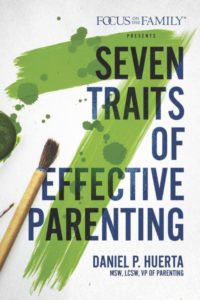Estimated reading time: 7 minutes
New parenting styles seem to be appearing every day. Yet claiming one style makes me laugh because kids are not one size fits all. They need time, conversation, teaching, guidance, patience and prayer. Parenting is not about perfection, but instead about becoming a student of your child.
Most people are doing the best they can. As parents, though, we want guarantees that our kids will come out right—just like cakes from the oven. We can easily cling to quick fix styles of parenting, but these styles leave much to be desired when employed alone. However, each offers at least one takeaway for how you can continue to grow as a parent.
Parenting styles
1. Dolphin Parents prioritize play, exploration, relationships, and downtime. They’re intentional with their family’s time.
Here is the takeaway:
- Bless yourself and your children with fun. Give time to play and exploration but don’t forget about making time for rest.
2. Elephant Parents emphasize the attachment of parents and children. They value closeness and connection, which are both essential; however, boundaries need to be taught along the way.
Here are the takeaways:
- Children benefit from learning how to navigate uncomfortable emotions as they venture away from closeness and connection.
- Children should learn how to handle being alone, sad, mad, disappointed, and frustrated as they grow in their relationships with God and others.
3. Tiger Parents demand excellence and have high expectations. These can be high-strung parents who cause burn out fast. Work is play for these parents, as they use a more of an authoritarian/strict style of parenting and demand excellence.
Here is the takeaway:
- Doing our very best is important, but so are joy and love. Consider how God loves us. Love does not place value on people for what they do but rather just for being who they are. Tiger parents need a balance between demanding excellence and showing love.

Navigate family life with grace and love!
4. Free-range Parents value independence and want kids to figure things out for themselves. They focus on allowing their children to problem solve and adapt without much guidance or supervision. This can be very dangerous. Kids are not developmentally ready to reason through many decisions on their own. Remember you are the parent for a reason. Be aware of what is appropriate for your child’s stage of life.
Here are the takeaways:
- Show respect by allowing children to work out some difficulties as is appropriate for their age. Direct and guide more in the early stages, then become a coach as they approach adulthood.
- It’s essential for kids to learn their limits and the limits of others. The goal is not just to create an independent child, but a child who learns how to love, respect, serve, communicate and live with others.
Styles that focus on protection
5. Helicopter Parents desire to control every aspect of their child’s life. These parents value safety above all else. Unfortunately, research is confirming that kids with helicopter parents become more anxious and depressed than kids who have not been raised this way.
Here is the takeaway:
- Adaptability is a valuable life skill. Children benefit from feeling safe while also being free to make mistakes, fail, confront adversity, and be disappointed.
6. Lawnmower or Snow-plow Parents like to clear the way for their kids. They want to eliminate obstacles, challenges, and problems so their children will easily find success and thus happiness.
Here is the takeaway:
- Remember we all learn in adversity. A better approach would be to help children learn gratitude. We can be thankful even in difficult moments. I have heard that eagles fly into the storm to rise above it. What if plowing ahead prevents your kids from flying higher?
New parenting style idea: growing as a purposeful parent
The difficulty with parenting is that we need bits and pieces of each style, which is why I love the ideas provided through the seven traits of effective parenting. A 7-trait parent should be loving, respectful, intentional, grateful, adaptable, set good boundaries and limits and show grace and forgiveness. This isn’t always easy. And that is why we have prepared the article series, 7 Traits of Effective Parenting, to help along the way.
Parenting has predictable moments like eating breakfast and running late. It also has unpredictable moments like kids throwing up, getting upset, or hitting another child. This is why choosing a formula and applying it to all situations is problematic. Parenting depends on the child’s needs, wants, mood, personality, and maturity.
This means we, as parents, have to wrestle through our vast universe of emotions, questions, what ifs, comparisons and self-doubts. Ultimately, we should ask God to lead us in the right direction.
Guidance
Each child needs unique guidance. Deuteronomy 6:4-8 tells us to teach our children diligently and consistently. God’s word also tells us we will face adversity, yet we can be strengthened through Him.
Remember, each day you get to learn, adjust, and grow in your parenting style. God gives us thousands of hours and hundreds of days, so there are plenty of learning moments that can transform you and your kids.
It really is a great adventure, so enjoy and pursue victories, not perfection!
Parenting means making a purposeful decision to spend time connecting with your kids.
What would you do if you had an extra hour every day that you could spend doing anything you wanted to do? Would you sleep, exercise, or squeeze in some extra work? Or perhaps you would spend more time with your kids, your spouse, or with God.
As parents, we are bombarded on a daily basis with decisions, activities, and tasks. In our home, my wife and I bring our different backgrounds to our parenting. She was raised in a low-key, relaxed home. I come from a family that always seemed to be on the move. We’ve had to explicitly define the amount of activity our family will take on. And our children are good at speaking up, at telling us when they feel overscheduled. Family time is so valuable, and we’ve tried to manage it wisely.
This helps your child in several ways:
Value family time
Kids with intentional parents learn that time together as a family is a valuable priority. They see their house as a home, a refuge, a place to connect—not a place to leave as soon as possible.
Value rest
Kids learn that rest is important for effectiveness and connectedness. Rest is an important time to listen to what God is telling us, to grow in wisdom for the rest of our chaotic lives. Rest helps children mentally and physically prepare for the next set of life challenges.

Navigate family life with grace and love!
Value communication
When parents are intentional in connecting as a family, their children learn to listen, think and respond. They learn how to ask questions and how to share about their experiences. Making time for communication is essential to learning about each other and growing together as a family.
Balance time and priorities
Kids from intentional homes better understand their own energy levels and capacity for activity. They learn when to agree to more activity and when to decline an opportunity. They are better at not letting worries or fears dominate their decision-making because they know that in authentic relationships it’s okay to say “no” when they need time to rest.
Learn character formation and serving others
Intentional parenting involves imperfectly modeling and teaching these traits through a close relationship with Christ. Kids learn about honesty, responsibility, respect, and the Fruit of the Spirit — love, joy, peace patience, kindness, gentleness, goodness, and self-control. They learn to serve each other in the home and others outside of the home.
I’ve met several parents who have honed the trait of intentionality. Their kids tend to show gratitude, maturity, discipline, and balance. Yes, these parents would be the first to admit that raising their kids this way isn’t easy and takes lots of energy and thought, but they would also say that it has gotten easier over time.
Like many parents, my wife and I have had to sift through options for camps, sports, activities, clubs, and all the other things seeking our attention, time, and money. The trait of intentionality—purposively designing hours and evenings for family—isn’t always fun or easy, but the precious time we’ve spent with our kids have proven to us that the effort is worth it.















